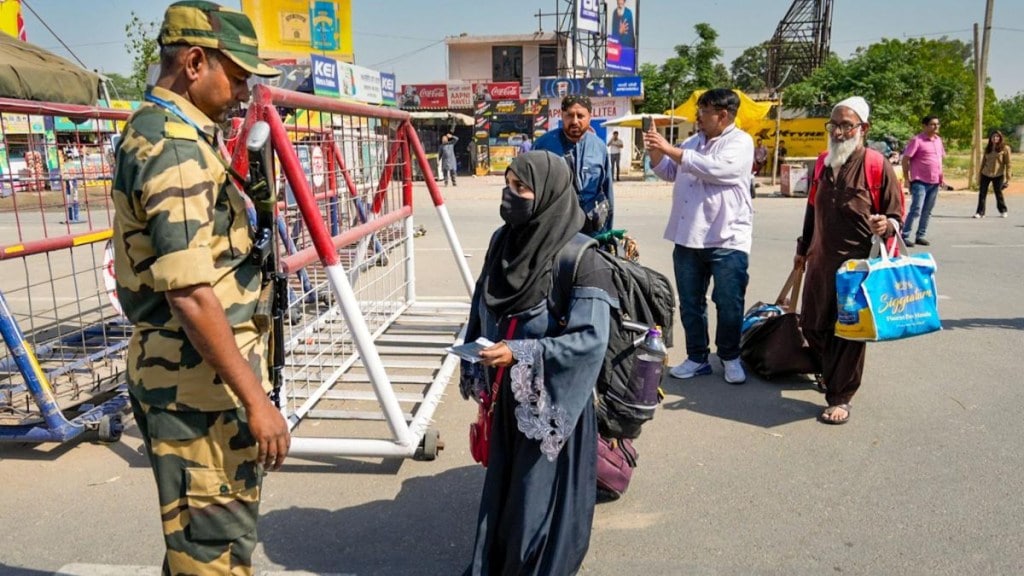In the wake of the devastating terrorist attack in Pahalgam that claimed 26 lives, the Indian government has issued a strict 48-hour deadline for all Pakistani nationals to leave the country, prompting a wave of departures through the Attari-Wagah land route in Punjab’s Amritsar on Friday.
The move, part of a broader series of diplomatic and security measures, comes as tensions between India and Pakistan soar. The terror strike in Pahalgam’s Baisaran Valley on Friday afternoon targeted a group of tourists, leaving several dead and many injured. The incident has drawn international condemnation and has deeply impacted cross-border ties.
In response, the Centre announced the expulsion of Pakistani military attaches, suspension of the decades-old Indus Waters Treaty of 1960 and the immediate closure of the Attari land transit post. It also revoked travel privileges under the SAARC Visa Exemption Scheme (SVES), mandating that any Pakistani currently in India under the scheme must exit the country within 48 hours.
Desperate appeals
A stream of Pakistani citizens gathered at the Attari-Wagah border on Friday as they scrambled to return home. Among them was a man from Hyderabad in Pakistan’s Sindh province, who pleaded with both governments to allow his children undergoing life-saving treatment in India to complete their medical procedures before being forced to return.
“We are here only for our children’s treatment. We are not involved in politics or violence. Please allow us to complete what we came for,” he told ANI.
However, it was not just tourists or medical travelers affected. Several Indian women married in Pakistan, many holding Indian passports, found themselves trapped in bureaucratic limbo. Despite having valid documentation, many were reportedly denied permission to cross over to Pakistan.
Trapped between borders
Shaniza, an Indian passport holder married in Karachi, shared her anguish at Attari. “I came to Delhi to visit my ailing mother. Now they are not allowing me to return. My husband and father-in-law are waiting on the other side. I have all my papers, yet I’m stuck.”
Another woman traveling with her two children, both Pakistani nationals, expressed a similar concern. “I’m being told Indian passport holders cannot cross over. But I’m married in Pakistan. I have to take my children back. What do we do now?” she asked.
Arooda Imran, who got married in Pakistan two decades ago, echoed these concerns. “I’ve applied for Pakistani nationality. My daughters are Pakistani citizens. I came for a short visit to India and now I’m being forced to leave abruptly, without proper arrangements.”
She highlighted the logistical hurdles they faced in complying with the deadline. “We had to travel over 900 km from Jodhpur to Attari. There were no buses. My husband had to spend over Rs 1 lakh just to arrange tickets and transport.”
Many women shared that their brief visits to India were cut short. “I was supposed to be here for just 15 days. I stayed four and had to rush back. Our parents were crying. We left in a hurry. This is not justice,” one said.
Several individuals, like a man who came to drop his sister off at Attari, lamented the emotional and financial toll. “She had a valid 40-day visa but had to leave immediately. We had to hire a car for her return. These decisions hurt ordinary people. There should be peace,” the man said.
Foreign Secretary Vikram Misri said that the measures were necessary in light of “credible cross-border links” to the Pahalgam attack. “There will be no leniency for those abusing India’s openness,” he said, reaffirming that the SVES will remain suspended until further notice.

